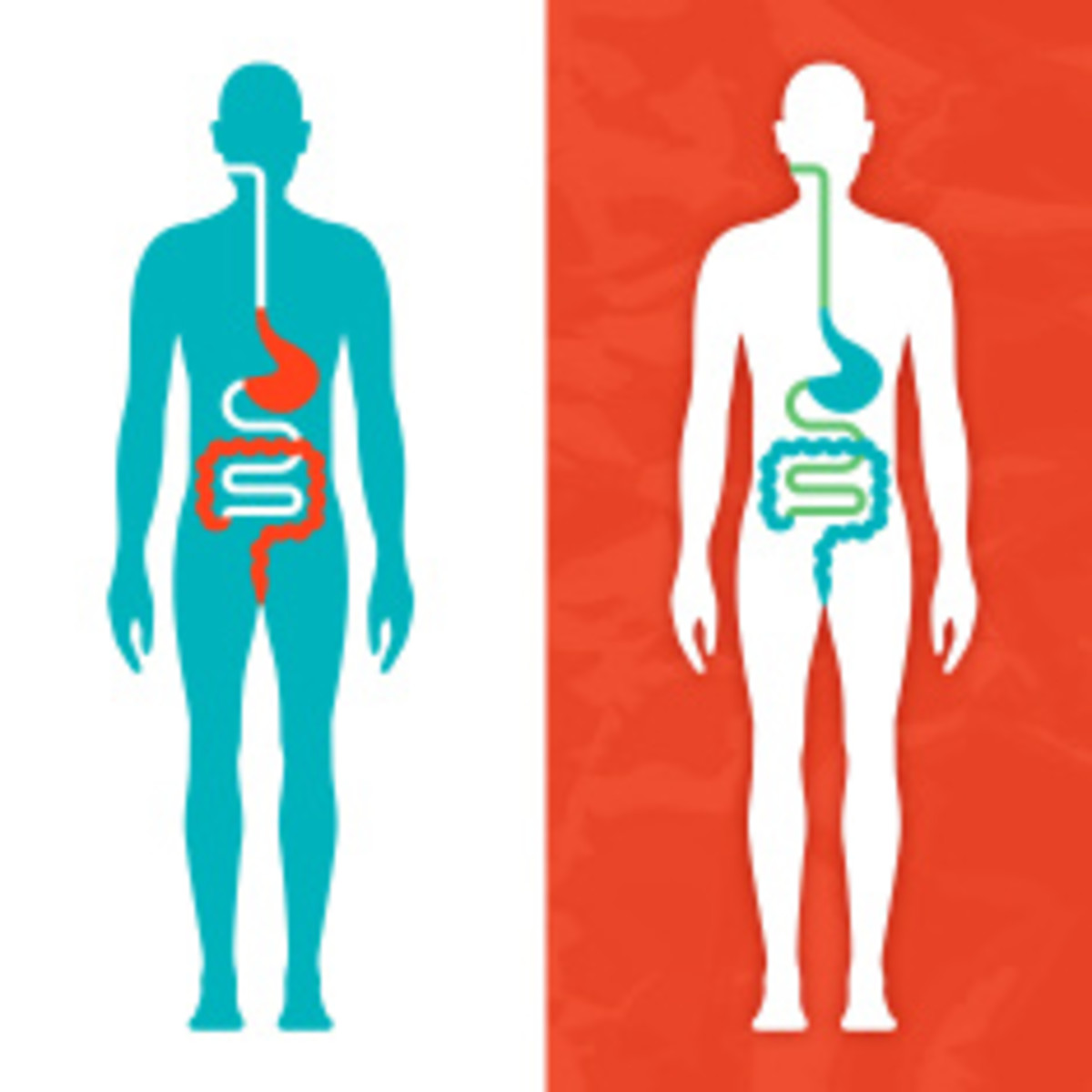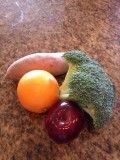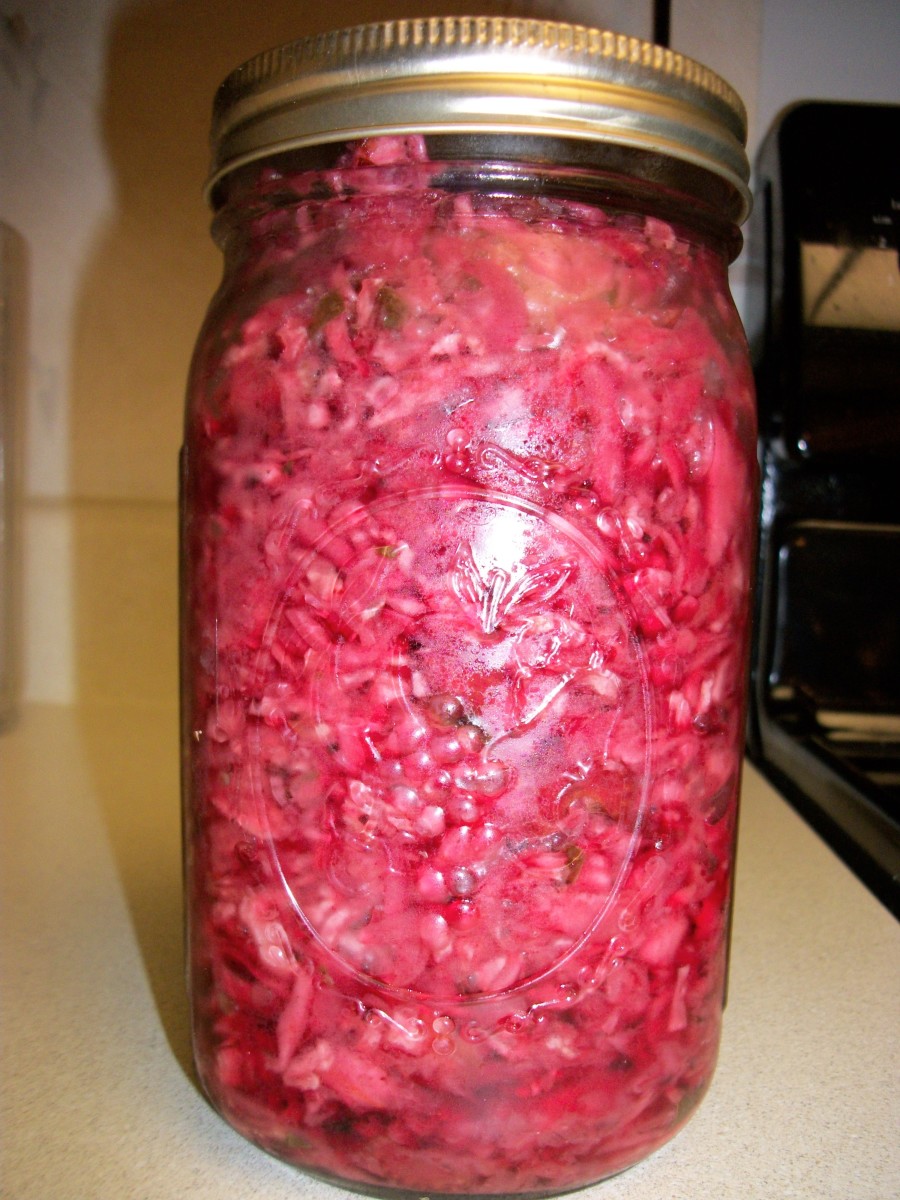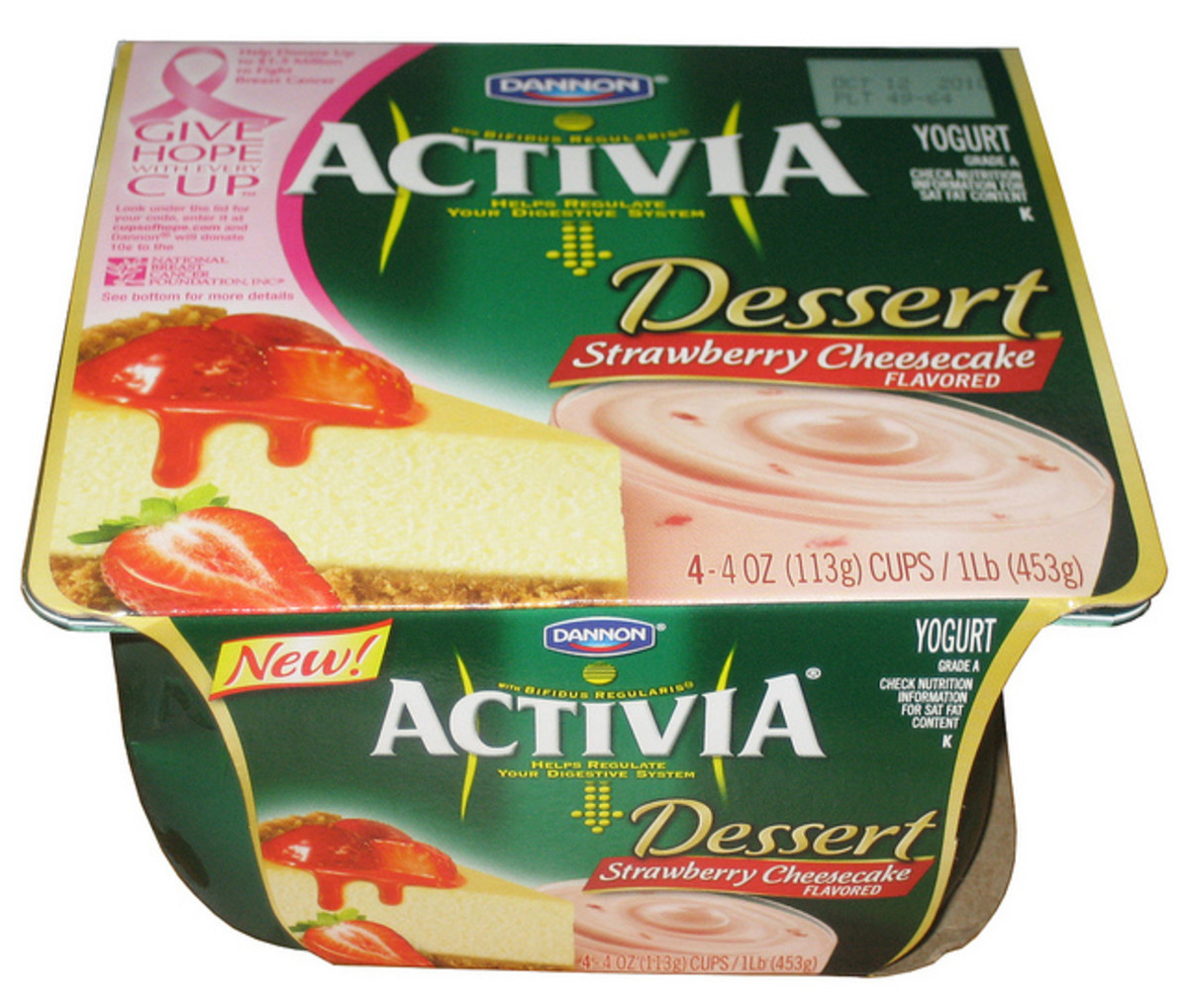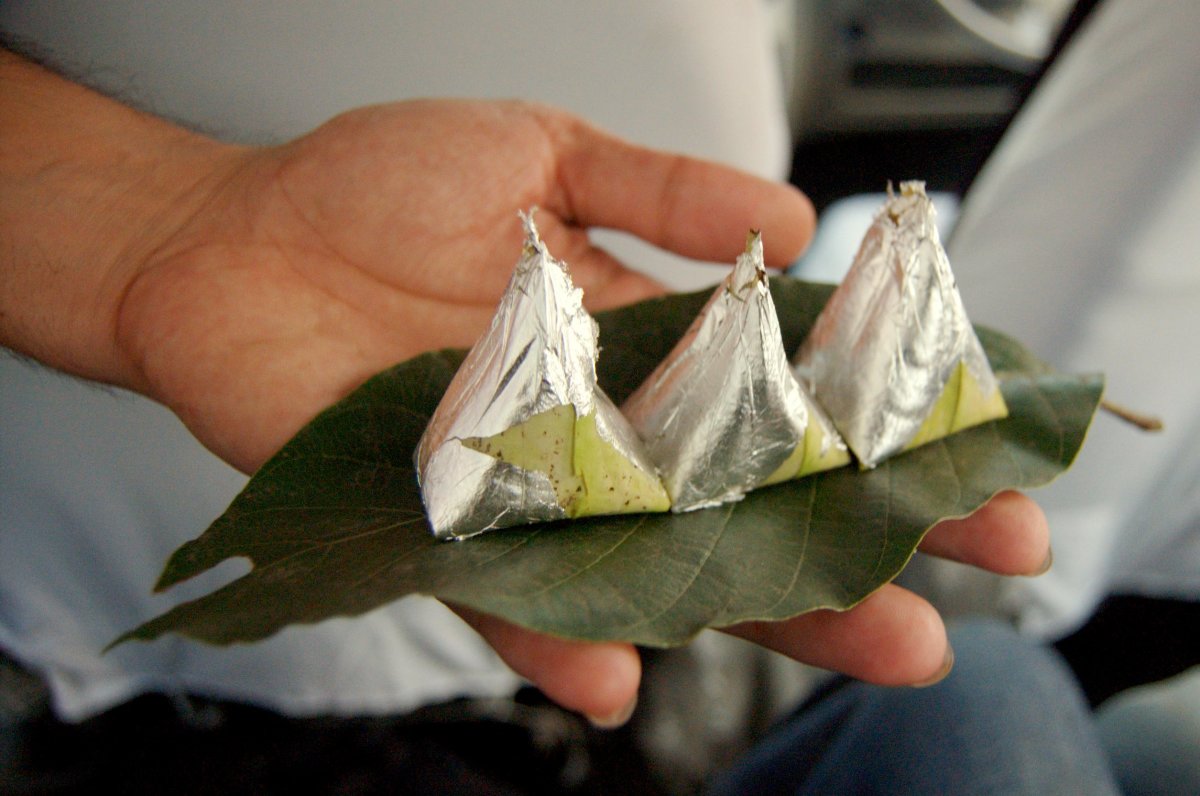- HubPages»
- Health»
- Alternative & Natural Medicine»
- Alternative & Natural Supplements
Natural Probiotics and their Benefits
What are Probiotics?
The term probiotic means 'pro-life' or ‘for life’ in Greek. Probiotics are live microorganisms which are present naturally in our surroundings, our skin, digestive tract, nasal tract, urinary tract, genital area, mouth, etc., Not all bacteria are harmful, some bacteria are not only beneficial but are needed for some of our body functions. Probiotics are the good microorganism that are beneficial to our heath and have suddenly become the rage. Natural probiotics are found in foods that are fermented. The use of fermented foods by man has been recorded since biblical times. Studies have shown that consumption of probiotic foods aids in digestion and assimilation of food. It also helps to maintain and establish the delicate balance of intestinal bacteria and health in general.

Probiotic Food - History
Fermentation has been a favourite method of processing and preserving food for centuries. It has been an effective way to preserve fruits and vegetables for longer periods. Grains and fruits have been brewed into beverages through the process of fermentation. People have been using different forms of yeasts for baking foods. Today a huge sector of the food industry, namely the beverage industry depends on the processes of fermentation for its product range. It has been known for centuries that fermented foods are good for health.
Bacteria and their action in our body
Our digestive tract contains trillions of bacteria, some of which are bad, while others are vital for the optimal functioning of the body. The good bacteria help to balance the action of the bad bacteria which cause infections and diseases. Good bacteria in the intestines could get killed or severely reduced due to various reasons like - taking antibiotics, aging, illnesses, food poisoning, excessive consumption of processed foods, consuming foods that are low in fibre, alcohol and drug abuse etc. People often suffer from diarrhoea and other illnesses when the good bacteria in the gut get depleted. Consumption of natural probiotics such as yoghurts, fermented milk drinks or other fermented foods helps restore the balance in the gut.
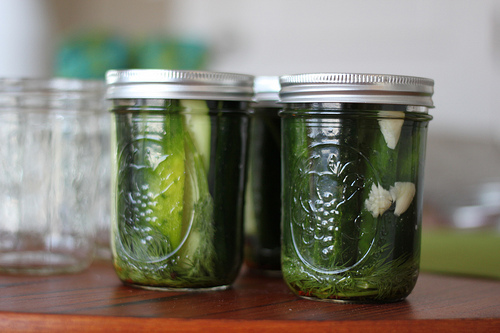
How do probiotics work?
- Probiotics inhibit the growth of bad bacteria in the body.When natural probiotics are consumed they colonize the gut and reduce the activity of the bad bacteria.
- They fight against bad bacteria. In other words they are anti microbial. They help increase our immunity and make our body more resistant to diseases and infections
- They improve the secretion of digestive enzymes. They help improve digestion.
- They increase the production of lactic acid and help regulate the pH balance in the intestines and other parts of the body.
- Probiotics in the gut can ferment fructooligosaccharides which results in a reduced pH balance.The reduction of pH balance increases acidity in the gut enabling better absorption of calcium and making it easy for the calcium to get into the blood stream.
- Consumption of probiotics promote favourable acidic pH which facilitates the absorption of protein and minerals like calcium, copper, magnesium, iron and manganese.
- They have been known to have anti inflammatory properties
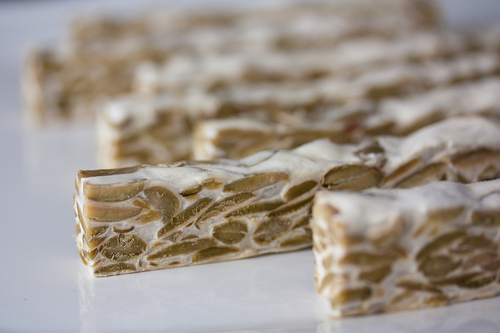
Facts about Probiotics
The concept of probiotics evolved from a the hypotheses of Nobel Prize winning Russian scientist, Elie Metchnikoff (Metchnikoff 1908), who was then a professor with the Pasteur Institute, Paris. He suggested that the longevity of Bulgarian peasants was a result from their high consumption of probiotics which replaced the bad bacteria in their gut.
Benefits of Natural Probiotics
- Probiotic foods are beneficial for normal healthy people as well as people who have specific problems.
- They improve digestion and helps in the assimilation of certain vitamins. They help increase immunity and revitalize your health in general. They also help normalize bowel movement.
- When a person suffers from diarrhoea the addition of yogurt to the diet has been known to help the person recover faster.
- Studies have also shown that the consumption of natural probiotics is useful in the treatment of inflammatory bowel disease especially ulcerative colitis, although studies are not conclusive about the positive effect of probiotics in Crohn’s disease.
- Travellers’ diarrhoea is a common problem for those travelling to hot and humid countries. You could prevent or alleviated this by the consumption of natural probiotics – especially curd or yogurt.
- Research has also shown that probiotics help reduce symptoms of irritable bowel syndrome though this may not work for all. Doctors do recommend people to try probiotics for a period of 4 weeks to see if it would work for them.
- Scientists in Israel found that rats fed on probiotics experienced fewer arthritic symptoms. This may validate the finding that probiotics have anti-inflammatory properties.
- Japanese scientists have reported that taking probiotic in yoghurt drinks reduces the chances of developing colon cancer.
- Some studies have shown that probiotics could help prevent neural tube defects in the foetus. They are also stated to cure megaloblastic anaemia and help in the reduction of reduction of cardio- vascular disease. More research needs to prove these results conclusively.
- Probiotic consumption has been shown to reduce symptoms of stress and anxiety in mice. In a study on mice John Cryan and colleagues found that probiotics have a direct impact on the neurotransmitters and thereby on the mood. It was noticed that the mice fed with probiotics showed less stress symptoms as compared to the controlled mice which were not fed probiotics.
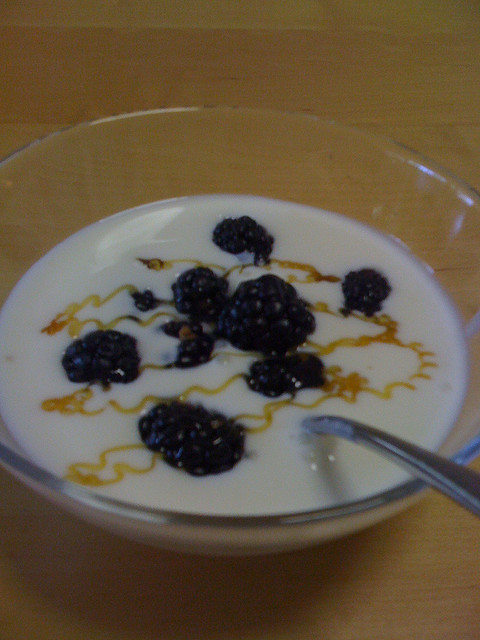
Which Probiotic Do You Prefer?
Natural Probiotic Foods
Studies have shown that probiotic supplements especially capsules and sachets do not necessarily contain the bacteria stated on the labels or they may not be active cultures. How then do you get dependable natural probiotics? You can make your own. You do not have to spend too much money on yoghurt or any of these probiotic foods. You would not only find them cheaper to make at home but even of a better quality than packaged food.
Yogurt/curd is an excellent probiotic which has been known for its beneficial properties for centuries. People with lactose intolerance can usually tolerate the lactose from yogurt/curd better than from milk. Fermented lactose is much easier to digest
Making yogurt/curd at home is easy. Warm a bowl of pasteurised milk. It should be tepid. Add two tablespoons of organic unsweetened yogurt and leave it in a warm place. This is a live culture, which could be used to make fresh yogurt every day. You would never have to go back to the store to buy yogurt again.
For ages in India people often finish off a meal with curd/yogurt either as a drink or as a course by itself with rice. Curds are mixed with rice to which a little salt it is added and relished with pickle. It has been believed that curds improve digestion and reduce flatulence. Rarely would you find a person finishing a meal without curd. Lassi is a popular drink in North India. It is thick yogurt, beaten with sugar or salt and consumed at the end of a meal. The concept of probiotics is not a new in most Asian countries.
Butter milk - Butter milk is the residue of milk after the butter has been removed from it. This is slightly sour in taste and contains no butter at all. In India and some Asian countries buttermilk would be a watery form of curd from which butter has been removed by churning. This is a common drink during the hot summer season to prevent diarrhoea and other infections of the digestive system. A pinch of asafoetida, salt, curry leaves, etc., are added to make it more flavourful.
Kefir - Another fermented milk drink, which can be the base of smoothies. Kefir is becoming more popular as a probiotic drink lately.
Sprouted grains - Whole grains that are soaked in water for twelve hours or more and allowed to sprout are not only rich in proteins but are also excellent probiotics. They could make interesting salads which are nutritious and healthy.
If you do not like to consume dairy foods or if you follow vegan diets you could make soy based yogurt. You could make it much the same way as you make dairy based yoghurt by adding two tablespoon of unsweetened yogurt.
Natto (fermented soy beans)is another probiotic which you could serve with rice. Natto is available in most Asian grocery stores.
Tempeh - Tempeh is also a soy product. It is made from by cooking soybean and fermenting them. You could make great veg-burgers with tempeh patties. You could use Tempeh by crumbling them into your stir fries, soup or make a veggie chili.
Miso - An indispensable part of the Japanese kitchen, is another great probiotic food. Just adding a little bit of Miso paste to a pot of water with Tofu or seaweed or any dark greens of your choice you can make an excellent soup. Miso is made by fermenting soy bean, barley, brown rice and other grains for a few days to years. The darker the paste the better it is for you.
Cottage cheese - Most varieties of cheese including tofu are rich in natural probiotics. Cottage cheese, hung curd, etc., are easy to make at home and are equally rich in probiotics. These probiotic foods could help you get more calcium in your diet and could form a part of your dinner or lunch.
Probiotic Facts
- The acidic environment of the stomach makes it difficult for many bacteria to survive.
- Dairy products help reduce stomach acid and increase the probiotics chances of survival.
- Probiotic bacteria remain stable during refrigeration.
Red wines are rich in probiotics. Consuming a little red wine a day would help add to good microbes in your gut.
Kimchi - A Korean pickle dish made from cabbage with other seasoning and fish sauce is another excellent probitic food.
Sauerkraut - Sauerkraut is the Kimchi of Europe and America. You could make Sauerkraut by adding shredded cabbage to brine and leaving it to ferment for two days to a couple of weeks.
Pickles - Any vegetable that is pickled in brine is a natural probiotic. Pickle your own cucumbers, olives, and other veggies in brine. You could add our own herbs to make them more flavorful.
Though doctors would tell you that probiotics do not stand a chance in the acidity of your gut, there is much to prove that probiotics are good for you. You need to be careful about excessively consuming probiotics that have been fermented in brine, if you are on a low sodium diet. There is nothing to prove that probiotics are bad. Natural probitics are the definitely healthier than most of the processed food we consume today.

